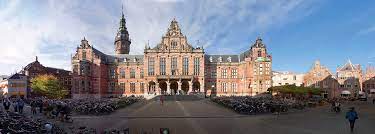University Of Groningen Projects To Receive Grant In Millions
Nine consortia of researchers, businesses, government institutions, and societal organizations will receive funding within NWOs Perspective programme. Perspective is a programme from the Dutch Research Council (NWO). Within the consortia, researchers, knowledge institutions, businesses, and other societal organizations work together on urgent themes. The UG and the UMCG are involved in three of these projects.
Repairing alveoli in COPD patients
Prof. Irene Heijink (UMCG) is programme leader at RecovAir: REpairing lung damage via reCOVery of stromal heAlth to restore respIRatory function.
In the Netherlands, nearly 600,000 people suffer from COPD. To date, a cure for this progressive lung disease has not been found and it is the number three cause of death worldwide. The RecovAir programme aims to change this. To this end, the researchers seal drugs or stem cells in an ultra-thin layer of hydrogel. This allows them to deliver the drugs in a very targeted way deep within the lungs preventing the body from immediately clearing the drugs. In places where the alveoli are damaged, the drugs or cells can then repair or replace the broken alveoli. In this way, this programme can reduce healthcare costs and increase the quality of life and social participation of this group of lung patients.
Microscopic techniques and sediment management
The UMCG is involved as a knowledge institution in the 3DNI programme, led by Prof. Sjoerd Stallinga (TU Delft). The 3DNI programme is working on technology that can create 3D images of atoms, molecules, and cells at high speed. To this end, the researchers are developing new microscopy techniques based on light, electrons, or both.
The UG collaborates in the WadSED programme, led by Prof. Maarten G. Kleinhans (Utrecht University). WadSED compares the Wadden Sea and the Western Scheldt, builds new tools, and designs a new approach for joint management and policy to achieve future-proof sediment management that simultaneously protects our coasts from rising sea levels, declining biodiversity, and increasing dredging costs.

